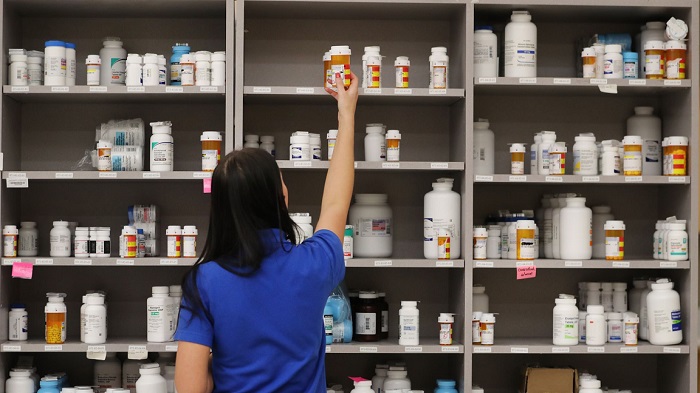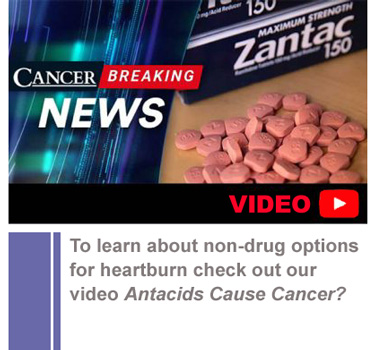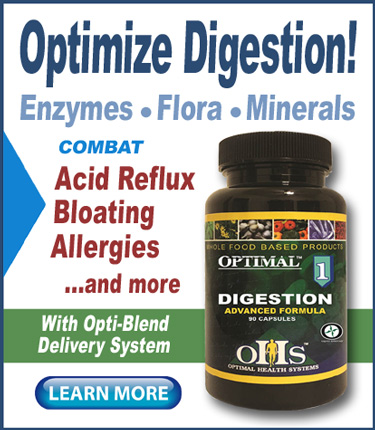In September 2019, CVS Pharmacy, Walgreens and Walmart announced they would no longer sell Zantac and other over-the-counter heartburn medications containing ranitidine.
The following month, drugmaker Sanofi voluntarily recalled Zantac over-the-counter medications sold in the United States and Canada.
Now the debacle has moved to the next level:
Total removal from market
On April 1st the U.S. Food and Drug Administration (FDA) ordered manufacturers to immediately pull all over-the-counter and prescription ranitidine drugs.
Then the lawsuits started mounting as big-name lawgroups smelled blood in the water.
How ironic that supplement sellers were villified for decades by the FDA for warning customers of the dangers of heartburn medications, and suggesting safer natural alternatives such as enzymes, probiotics, ginger and licorice root.
During the 35 years Zantac/ranitidine was marketed, dozens of supplement sellers were issued warnings for saying herbs could “cure” heartburn issues.
Supplement manufacturers have to walk a fine line with the claims they make, and application of the rules are often arbitrarily applied by the FDA. Generally speaking, however, the FDA will allow supplement advertising that uses wording like “nutritionally supports,” but will not allow claims of “curing.”
Only FDA-approved pharmaceuticals can make curing claims.
From top seller to total denouncement
At one point Zantac was the number one selling drug in the world.
Its use was so widespread that a 2017 study showed that urination of ranitidine into wastewater was causing carcinogenic pollution of municipal water supplies.
The issue stems from Zantac causing levels of the probable carcinogen N-nitrosodimethylamine (NDMA) to rise in users’ bodies.
Decades of research determined that NDMA was the result of the “inherent instability” of the ranitidine molecule. This means that all manufacturers—name brand or generic—and all batches of ranitidine-containing medications could generate very high levels of NDMA in the human body.
And a high level of NDMA was, in turn, shown to cause cancer and kidney disease.
Though this news is a surprise to most, the cancer connection has long been suspected. A 2004 study by the National Cancer Institute, for example, linked ranitidine to bladder cancer.
What happens now?
Zantac/ranitidine is now off the market and customers have been advised to dispose of any remaining product; however, that’s clearly not the end of it. Not by a long shot.
The FDA says their investigation—which started in the summer of 2019—is ongoing.
Meanwhile, nationwide advertising by lawgroups has commenced to sign-up Zantac “victims” to participate in class-action lawsuits.
The number of consumers participating is likely to be in the hundreds of thousands… perhaps millions.
No doubt many of these consumers will follow the FDA advice to switch to another “government-approved medication.”
The alternative to drugs is… more drugs?
The FDA reports that, to date, they have not found NDMA in other popular products. The FDA specifically mentioned famotidine (Pepcid), esomeprazole (Nexium), and omeprazole (Prilosec).
Of course each of these medications come with its own list of dangerous side effects. And the irony that Zantac itself was “government approved” for 35 years appears to not register on most.
If you prefer a natural alternative to waiting another 35 years to discover the damage a new “government approved” medication is causing, check out the ingredients in Optimal Digestion from Optimal Health Systems.
For over two decades Optimal Digestion has been addressing underlying digestive issues rather than simply masking symptoms.
– – –
Sources: FDA.gov/news, CNN.com, SemanticScholar.org, National Cancer Institute (Cancer.gov).



